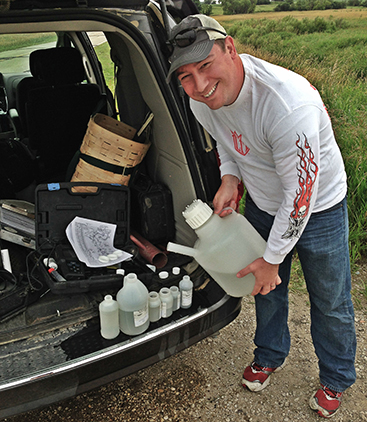


More than 39,860 people across the nation and 17,700 people in Iowa participated in education and training sponsored by the State Hygienic Laboratory.
Public health professionals, laboratorians, first responders and others in the health fields attend training sessions at the Hygienic Laboratory. Training topics encompass emergency preparedness, environmental regulations, food safety, influenza and newborn screening.
STEM (Science, Technology, Engineering and Math) education creates a foundation for the future workforce. Many educational programs offered by the Hygienic Laboratory are created for students in grades K-12, including hands-on interactive learning and a Student Mentorship Program for junior high and high school students. This section also manages internships for college students, fellowships for post-graduate students and externships for teachers.
- Selected to provide a digital display in the University of Iowa Mobile Museum, which traveled 4,498 miles across Iowa to 34 events, attracting 8,257 visitors during this fiscal year.
- Hosted 14 STEM events with 469 participants, and participated in an additional nine STEM events throughout the state with over 9,100 participants.
- The iExploreSTEM festival, which originated at the Hygienic Laboratory, was held in 45 locations throughout Iowa, with 14,970 participants.
- Hosted three science teachers for the Real World Externships for Teachers Program.
- Hosted 17 interns, one public health associate fellow and one environmental fellow.
- Worked with staff who mentored six junior high/high school students with science projects through the Student Mentorship Program.
- Worked with State Rep. Dave Jacoby who served as the sixth State Hygienic Laboratory Ambassador.
- Partnered with businesses to develop the STEM Innovator Institute, a model for engaging K-12 schools in innovation and entrepreneurship through a community-driven, problem-based, interdisciplinary approach to learning framed in a STEM context.



